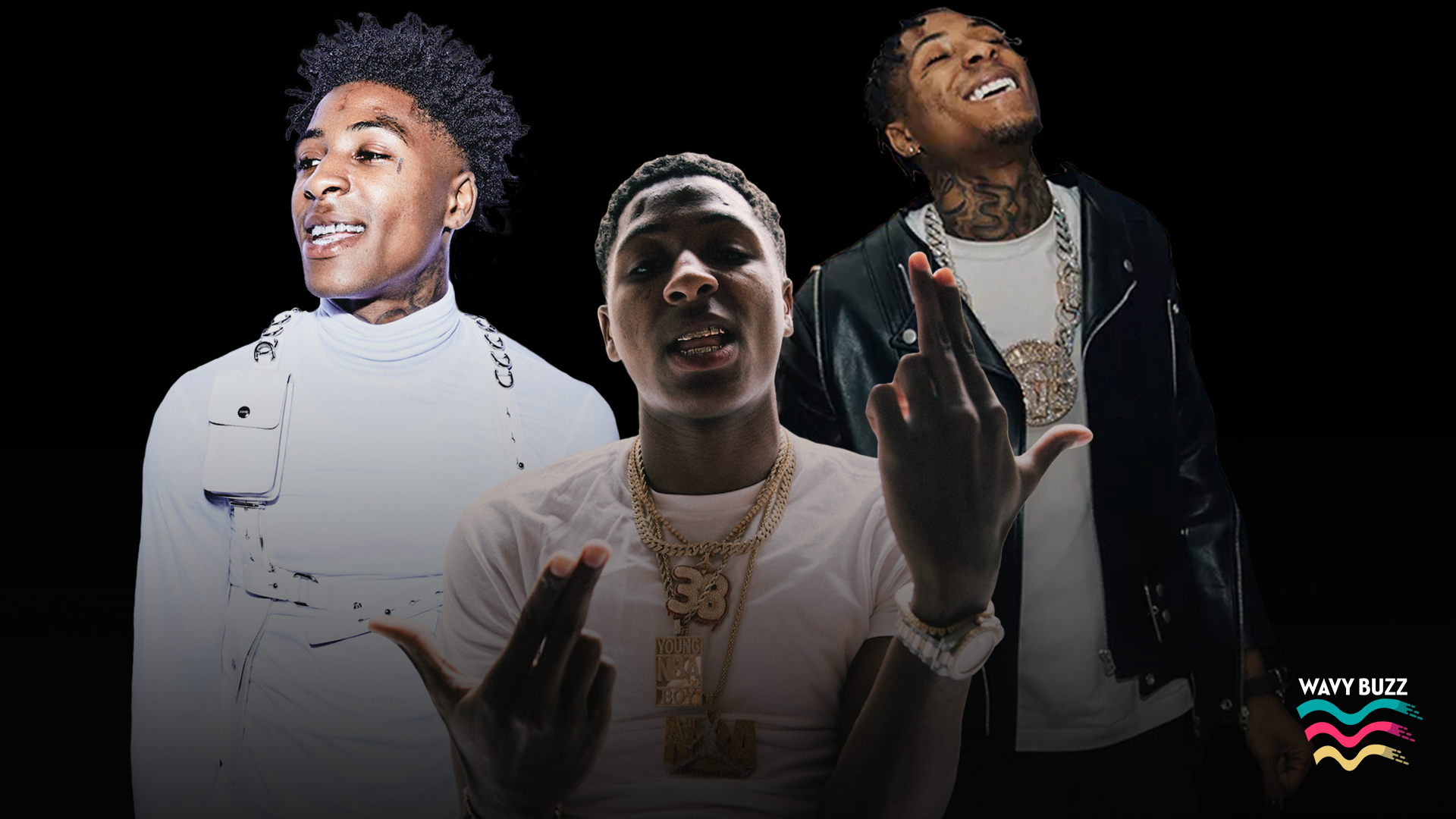For most people, depending on the era, the title of “best rapper” is synonymous with names like Jay-Z, Biggie, Nas, or Lil Wayne. But for Gen-Z, there’s a new name dominating that conversation: NBA YoungBoy.
During a stream on Kai Cenat’s Maphiaton platform, rap veteran Jim Jones emphasized that the only artist who can stay inside, avoid the spotlight, and still have the culture at his fingertips is none other than YoungBoy. Considering Jones’ tenure and respect in Hip-Hop, the statement only solidified what many already knew—YoungBoy’s influence is certified. Over the past few years, the 25-year-old has stormed mainstream culture, but his dominance has been building steadily for much longer.
YoungBoy has achieved a feat few rappers can match — he holds more gold and platinum plaques than Taylor Swift. His popularity is directly tied to his relentless work ethic. With over 34 projects on the Billboard 200, his consistency stems partly from years of turbulence, particularly his ongoing battles with law enforcement. After five years of legal struggles, his career reached a pivotal moment when President Trump granted him a pardon, paving the way for his highly anticipated Massa Tour. To truly understand how YoungBoy became Gen-Z’s voice, it’s worth looking back at his story.
Upbringing
Kentrell Desean Gaulden, known to the world as NBA YoungBoy, was born on October 20, 1999, in Baton Rouge, Louisiana. Raised by his grandmother while his parents faced legal and personal struggles, YoungBoy had the freedom to wander and play—a freedom that led to a neck injury at the age of four. The accident left him with a permanent scar, now a part of his identity as an artist.
When his grandmother passed away, YoungBoy was only 10 years old. He briefly stayed in a group home before being taken in by his friend 3Threefamily. Surrounded by an environment of crime, drugs, and violence, YoungBoy found solace in music. He adopted the name “Never Broke Again” (NBA) as both an alias and a mission statement. With the support of his older brother Pierre, YoungBoy began his relentless pursuit of Hip-Hop greatness.
Early Career
Determined to make it in rap, YoungBoy dropped out of school in ninth grade and began releasing music on SoundCloud and YouTube. By 2016, he was gaining traction with projects that caught the attention of Baton Rouge peers and national artists like Kevin Gates and 21 Savage. Mixtapes such as Before I Go and 38 Baby created buzz outside Louisiana, while his breakout tape AI YoungBoy delivered hits like No Smoke and Untouchable, earning him his first Billboard Hot 100 entries.
This momentum led to a deal with Atlantic Records and Artist Partners Group, where he released his debut studio album, Until Death Call My Name (2018). The album debuted at No. 7 on the Billboard 200 and went double platinum, cementing YoungBoy as a generational voice. From there, collaborations with major artists such as Future, Nicki Minaj, and Migos expanded his reach and positioned him as a mainstream force.
Legal Trouble
YoungBoy’s rise has often been shadowed by legal battles. In 2016, he was indicted for attempted murder. Later arrests for assault, kidnapping, and illegal firearms possession meant much of his career was spent either incarcerated or under probation. After multiple sentences, including a high-profile firearms case in 2021, he relocated to Utah under supervised probation.
In 2024, his legal troubles escalated again with allegations of involvement in a prescription drug ring. Facing multiple felony charges, he struck a plea deal that reduced his offenses to misdemeanors, avoiding a lengthy prison sentence. These constant clashes with the law often stalled his momentum but also fueled his artistry and notoriety.
Turning a New Leaf
In May 2025, President Trump granted YoungBoy a pardon, wiping the slate clean. The rapper publicly thanked Trump on Instagram, expressing gratitude for the chance to rebuild as a man, father, and artist. Free from legal shackles, YoungBoy launched his long-awaited Massa album and embarked on his first tour in five years.
The Massa Tour became a cultural phenomenon, selling out arenas nationwide and sparking viral moments—like streamer Kai Cenat breaking down in tears during a performance of Heart & Soul. For fans, the tour wasn’t just a concert; it was a cultural event.
Hip-Hop commentator DJ Akademiks called YoungBoy a “unicorn,” arguing that he embodies Gen-Z more than any other rapper. His influence extends beyond music—shaping slang, attitudes, and behaviors. The term “YN,” widely used among young men, has become tied to YoungBoy’s identity and his generation’s collective expression.
Birdman, CEO of Cash Money Records, has recently taken on a mentorship role with YoungBoy, predicting that his next record deal could be worth $250 million. Coming from one of the most accomplished Hip-Hop executives, it’s a powerful endorsement of YoungBoy’s long-term potential.
Despite his massive success, Akademiks notes that YoungBoy’s label has undervalued him, investing less in promotion compared to peers. Yet he remains the most streamed rapper on YouTube and boasts an astounding 142 RIAA-certified plaques—30 platinum and 71 gold. Few artists across any genre can rival those numbers.
Conclusion
NBA YoungBoy’s story is one of contradictions: chaos and discipline, struggle and triumph, rejection and adoration. For Gen-Z, he represents more than music; he’s a reflection of their realities — raw, unfiltered, and unrelenting. He is at once a cautionary tale and a cultural beacon, shaping language, style, and emotion in ways few rappers ever have.
As he steps into this new chapter — touring sold-out arenas, earning legendary co-signs, and redefining his place in Hip-Hop — YoungBoy is no longer just a rapper from Baton Rouge. He is the voice of a generation, a once-controversial figure who has become Gen-Z’s favorite rapper and perhaps, its most unlikely icon.

